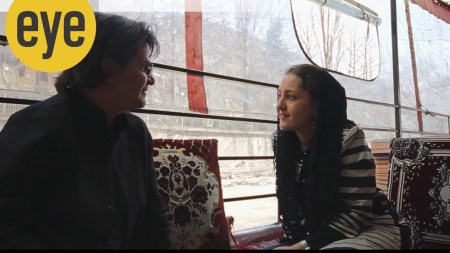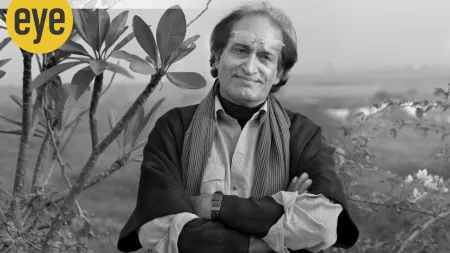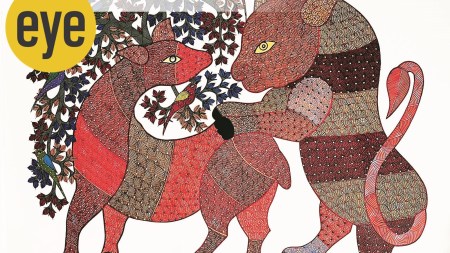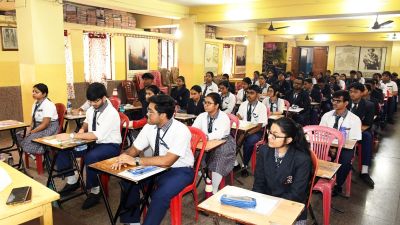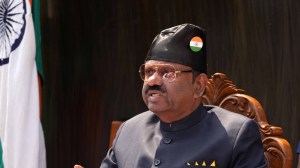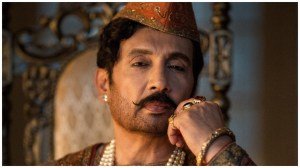- India
- International
J&K: Polls for newly created dist councils from Nov 28
The setting-up of 14 territorial constituencies or DDCs in each district was facilitated by an amendment to the Jammu and Kashmir Panchayati Raj Act, 1989, by the Central government on October 17.
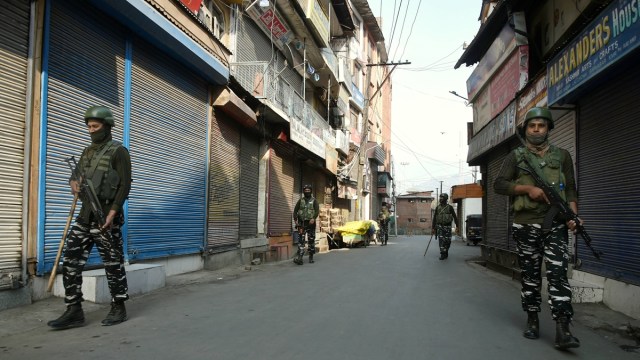 Security personnel patrol at a closed market in Srinagar, Saturday, Oct. 31, 2020. (PTI)
Security personnel patrol at a closed market in Srinagar, Saturday, Oct. 31, 2020. (PTI)The first-ever elections to the newly conceived District Development Councils (DDCs) in the Union Territory of Jammu and Kashmir will be held over eight phases beginning November 28. The setting-up of 14 territorial constituencies or DDCs in each district was facilitated by an amendment to the Jammu and Kashmir Panchayati Raj Act, 1989, by the Central government on October 17.
The members of the DDCs will be elected directly by voters in the Union Territory. Along with DDCs, bypolls for the vacant seats in existing urban and local bodies have also been scheduled. Elections for DDCs and urban local bodies will be held on party basis.
In the first set of elections to be held in J&K since the erstwhile state was split into two UTs, anybody ordinarily residing in the Union Territory of J&K for the past six months will be eligible to vote, even irrespective of the person’s domicile status.
“Yes outsiders ordinarily residing in Jammu and Kashmir for the past six months are eligible to vote provided they get themselves registered as voters before the last date of notification issued for the concerned phase,” said Chief Electoral Officer Hridesh Kumar at a press briefing on Wednesday. The Election Commission has no provision of identifying voters on the basis of domicile, he said.
Earlier, announcing the election schedule – DDCs, Urban and Rural Local Bodies – State Election Commissioner K K Sharma and Chief Electoral Officer Hridesh Kumar said separate notifications for the first phase of elections and by-elections will be issued on November 5, followed by November 7 (second phase), November 11 (third phase), November 13 (fourth phase), November 16 (fifth phase), November 19 (sixth phase), November 21 (seventh phase) and November 21 (eighth phase).

Similarly, the polling for the first phase will be held on November 28, followed by December 1, 4, 7, 10, 13, 16 and 19. While counting of votes for panchs and sarpanchs will be on the same day, that for DDCs and urban body by-elections will be held on December 22.
The entire process is scheduled to be completed by December 24.
Polling will be held for all 280 constituencies under the DDCs spread across all 20 districts of the UT (each having 14 constituencies), while by-election will be held for 234 vacancies in urban local bodies, including 230 in Kashmir.
Similarly, in the by-election for rural local bodies, 1,088 sarpanch and 12,153 panch constituencies will be going to polls in the eight phases.
While EVMs will be used during polling for urban local bodies, votes will be cast through ballot paper in the DDCs and rural local body polls.
Pointing out that the term of newly-elected DDC members will be for five years and that of panchs and sarpanchss against existing vacancies for rest of the period of the panchayat, Sharma said scheduled tribes have been provided reservation in the DDCs on the basis of their population in respective districts. The women from ST communities will have reservations in the seats reserved for the community, he said.
May 05: Latest News
- 01
- 02
- 03
- 04
- 05






